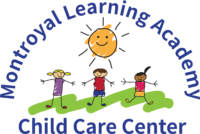Pre-Kindergarteners
Pre-Kintergarteners
Pre–k for all (4 years – 5 years)
Our program offers a nurturing and stimulating environment where children aged 4 to 5 years old can thrive and prepare for the exciting journey of kindergarten. Through a comprehensive curriculum that emphasizes academic readiness, social development, and creative expression, we lay the foundation for lifelong learning success. With experienced educators guiding them, children engage in hands-on activities, exploration, and group interactions, fostering independence, curiosity, and a love for learning. Upon Elementary schools approval, we schedule a tour to visit the elementary school in our neighborhood to familiarize children with school environment.
Skills that Children Will Learn
- Sharing and Cooperation: Children at this age continue to develop their ability to share toys, take turns, and cooperate with peers. They learn to negotiate conflicts and resolve disagreements through verbal communication, empathy, and compromise.
- Empathy and Understanding Emotions: Four to five-year-olds become more empathetic and aware of others’ feelings. They can recognize and understand basic emotions in themselves and others, which helps them develop more meaningful relationships and navigate social situations with greater sensitivity and compassion.
- Playing Collaboratively: Children in this age group engage in more complex and imaginative play scenarios with their peers. They learn to collaborate, problem-solve, and communicate effectively within group settings, fostering teamwork and building social bonds through shared experiences and interactions.
- Independent Dressing: By this age, children can typically dress themselves with minimal assistance. They can put on and take off clothing items such as shirts, pants, socks, and shoes independently, developing their fine motor skills and sense of autonomy.
- Personal Hygiene: Children at this age can start taking more responsibility for their personal hygiene. They can learn to brush their teeth effectively, wash their hands independently, developing important habits for maintaining good health and cleanliness.
- Basic Food Preparation: Encouraging children to participate in simple food preparation tasks, such as spreading peanut butter on bread or pouring milk into a cup, helps them develop independence and confidence in their abilities. These experiences also teach them about nutrition and healthy eating habits.
- Expanded Vocabulary: By age 4, children typically have a significantly expanded vocabulary and can understand and use a wide range of words. They can express themselves more clearly and precisely, using descriptive language to convey their thoughts and experiences.
- Improved Sentence Structure: Four-year-olds demonstrate improved sentence structure, constructing more complex sentences with proper grammar and syntax. They can articulate their ideas more coherently and effectively, using complete sentences to communicate their thoughts, feelings, and needs.
- Narrative Skills: At this age, children develop narrative skills, which involve telling stories or recounting events in a logical sequence. They can describe past experiences, make predictions about future events, and engage in imaginative play that involves creating and acting out stories. These narrative skills support their overall language development and help them make sense of the world around them.
